A jury has returned a range of possible verdicts in the trial of nine people, including eight Mongrel Mob gang members, who denied murdering of Tauranga man Mitchell Te Kani.
The group has been on trial in the High Court at Hamilton for the past eight weeks - with the jury deliberating for the past two - denying Mitchell’s murder, along with serious assault charges relating to his whānau, including his brother, Thomas Te Kani.
The jury delivered its verdicts to each defendant just after 4.30pm today.
All nine were cleared of his murder, while five were found guilty of his manslaughter.
However, three were found not guilty of causing his death at all, while the jury was unable to reach a verdict for one defendant.
The nine defendants were Kevin Allan Bailey and Shem Williams, both from Gate Pā; Mihaka Ratahi, of Pāpāmoa; Kiri Mereina Pini and Bodine Umuroa, from Parkvale; Hamiora Bennett from Brookfield; Huntly man Jahvaun Te Ari Layne; and Witaiawa Robinson and Samuel Mark Milosi of Tauranga.
Jamie Robin Thomas, of Rotorua, had his charges dismissed earlier in the trial.
The verdicts
Umuroa was guilty of his six charges, including manslaughter, as was Pini.
Bailey was guilty of the assault charges but found not guilty of manslaughter, along with Williams. However, Williams was found guilty of his two additional perverting the course of justice charges.
Bennett was also guilty of four assault charges but the jury returned a hung verdict for the manslaughter charge.
Layne was found guilty on the four assault charges and a manslaughter charge, along with Robinson and Ratahi, but Ratahi was also guilty of his additional attempt to pervert the course of justice charge.
The jury was unable to decide Milosi’s assault-related charges, returning four hung verdicts, and he was found not guilty of manslaughter.
What happened?
Te Kani, 51, died outside his parent’s house late on the evening of Saturday, May 14, 2022, in what the Crown alleged was a retaliatory attack carried out by the gang, after defendant and patched member Bodine Umuroa, was beaten up by Mitchell’s brother, Thomas, in their Maungatapu Rd driveway.
Umuroa, and his then partner and fellow defendant, Kiri Pini, had turned up at the address earlier unannounced looking to grab some of her clothes but also looking for Thomas.
Pini and Thomas were in a long-term relationship and had two children before breaking up in 2017.
Pini met Umuroa in the months leading up to Mitchell’s murder.
The Crown alleged that the night the pair turned up, Umuroa was aggressive; he admitted a charge of threatening to cause grievous bodily harm to Thomas by saying he would “f****** waste him”.
As the pair left, Thomas and his relative Whetu Hika, got into a fight with Umuroa. Thomas overpowered him and then walked him to his car.
Umuroa was heard saying as he left that he’d be back with “the Rogues”, which was exactly what happened.
Witnesses reported seeing between 20 and 30 gang members turn up in five different cars.
‘Humiliated and angry or just putting on a show?’
Justice Becroft said the Crown case was that it could be inferred Umuroa left feeling humiliated and angry after his treatment by Thomas and that he went back to Ohauiti Rd – where a large number of Mongrel Mob members were drinking – and put out a “call for help”.
In their statements, Ratahi and Williams seemed to accept that call for help “in a general sense” but that did not mean the other defendants did.
The case was based on how the charges were laid - jointly or as a party - and that they were all part of a “common unlawful purpose”.
By doing that, the Crown didn’t have to prove who threw the punch or the fatal blow on Mitchell, but a series of other acts. The killer may not have even been in the dock as the Crown didn’t have to prove identity.
Under the Crimes Act, they were all liable for the action or actions of a person or persons who committed the alleged assault.
To get a guilty verdict, the Crown had to successfully prove a multitude of aspects, including that there was a “shared agreement by one or more of the defendants” that there would be a common unlawful purpose, that one or more agreed to help each other, and that they went on to the property.
The Crown also had to prove the defendant intended for the offence to be committed or knew that the offending was a “probable consequence”.
Additionally, for the murder charge, the jury had to be sure that the defendant went onto the property knowing that at least some of the group were carrying weapons, and that they either had an intention or “reckless intention” to kill someone.
If they concluded that only bottles were brought to the scene, they had to decide whether they were just to finish drinking or to intentionally use them as weapons.
To come to its verdicts, the jury had to use inferences, which were a conclusion of facts that they accepted as reliable.
“It’s not a guess, it’s not speculation. Whether you draw this conclusion on a particular issue is a matter for you to decide,” Justice Becroft said.
He also touched on gang issues and patches, which had been on display during the trial; when the Crown presented a gang patch on a mannequin.
“The issue of patches is very topical at the moment. You may have strong feelings about gangs, as I said at the start of the trial, whatever your view about gangs, they are a reality of life in New Zealand.”
But Umuroa’s defence counsel Tony Rickard-Simms said his client and the rest of the group went to the property to “put on a show”, and intimidate the Te Kani whānau, but told the jury they couldn’t be sure that Umuroa believed anything other than “trivial harm” would occur.
As for Pini, defence lawyer Scott Mills said she had been painted as “the Wicked Witch of the West” when she was simply “Dorothy, caught up in a tornado” that she had no control over.
He laid the blame for the assaults, and Mitchell’s death, at the feet of the Mongrel Mob.
Apart from Hamiora Bennett, all defendants accepted being on the Te Kani property that night.
Layne and Robinson, through their counsel, suggested a manslaughter verdict, while the rest said there wasn’t enough to prove murder or manslaughter.
The defendants
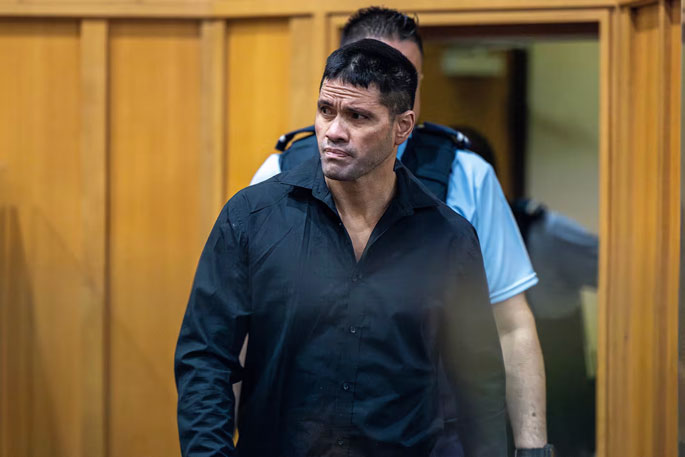 Bodine Jackson Umuroa. Photo / Mike Scott
Bodine Jackson Umuroa. Photo / Mike Scott
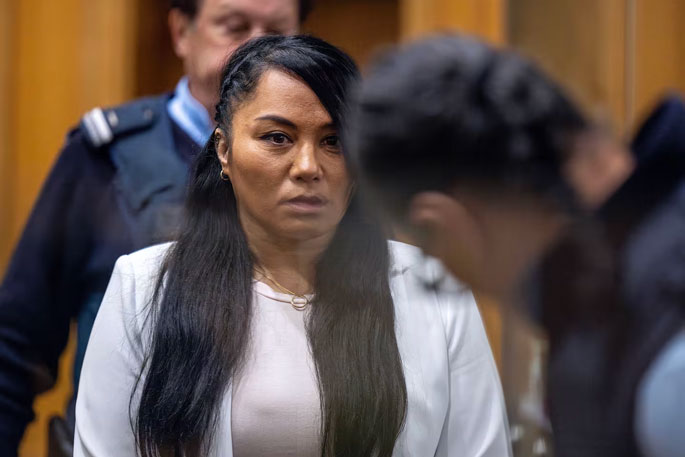 Kiri Mererina Pini. Photo / Mike Scott
Kiri Mererina Pini. Photo / Mike Scott
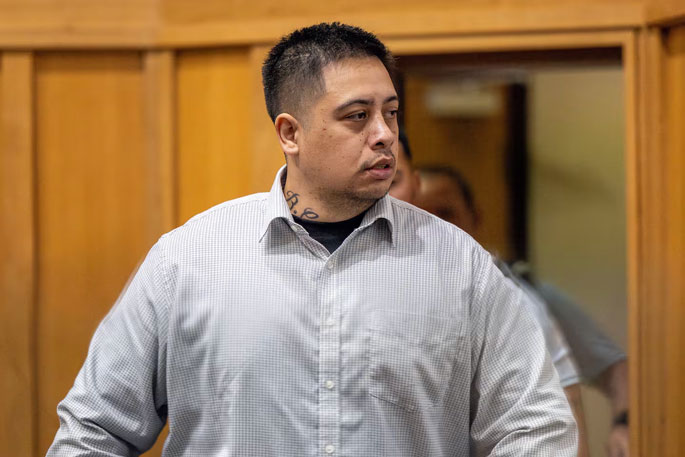 Kevin Allan Isaac Haimona Tunui Bailey. Photo / Mike Scott
Kevin Allan Isaac Haimona Tunui Bailey. Photo / Mike Scott
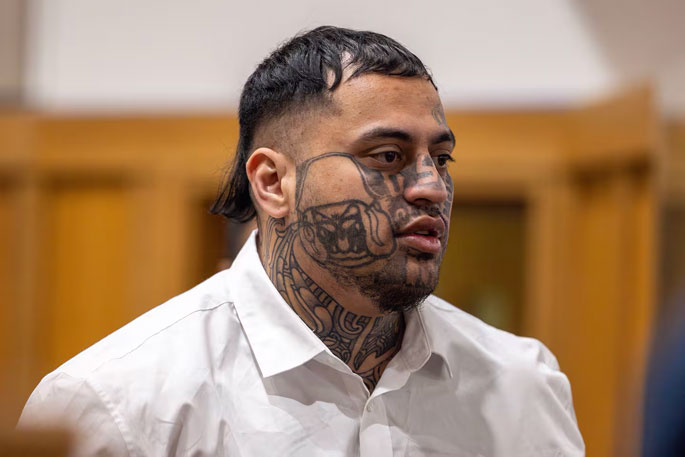 Hamiora John Te Moana Bennett. Photo / Mike Scott
Hamiora John Te Moana Bennett. Photo / Mike Scott
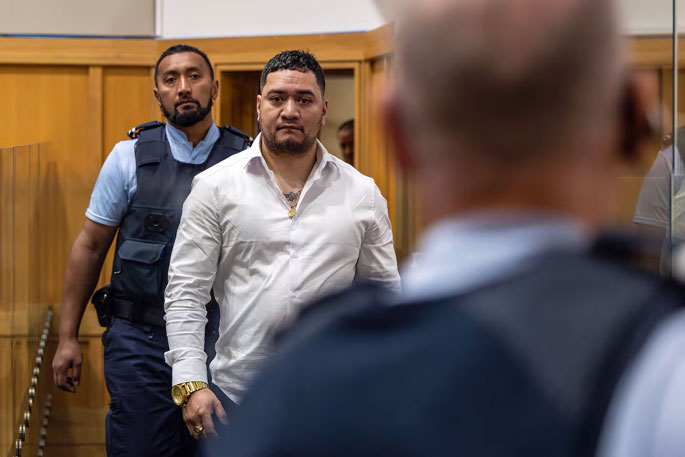 Shem Williams. Photo / Mike Scott
Shem Williams. Photo / Mike Scott
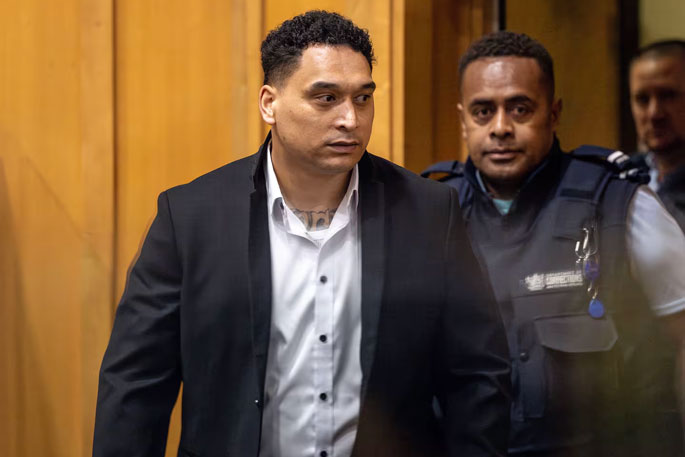 Jahvaun Te Ari Layne. Photo / Mike Scott
Jahvaun Te Ari Layne. Photo / Mike Scott
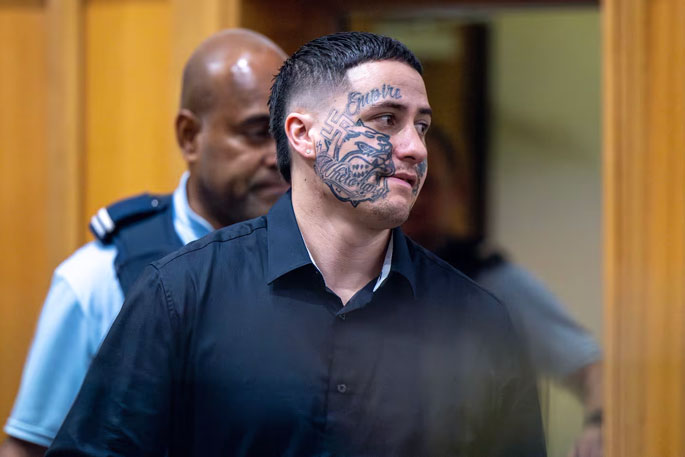 Witaiawa Robinson. Photo / Mike Scott
Witaiawa Robinson. Photo / Mike Scott
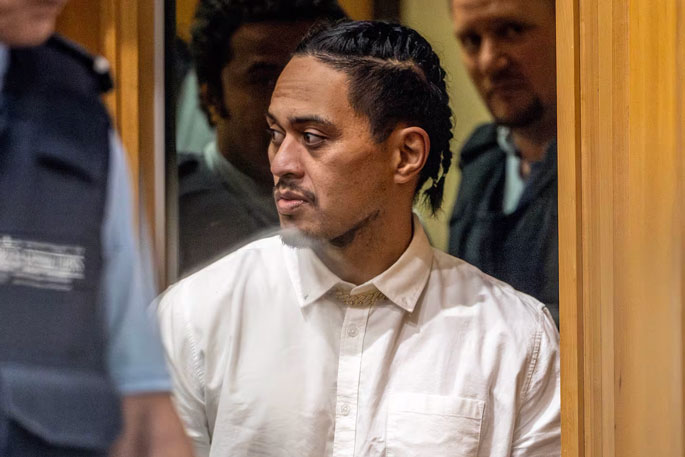 Mihaka Ratahi. Photo / Mike Scott
Mihaka Ratahi. Photo / Mike Scott
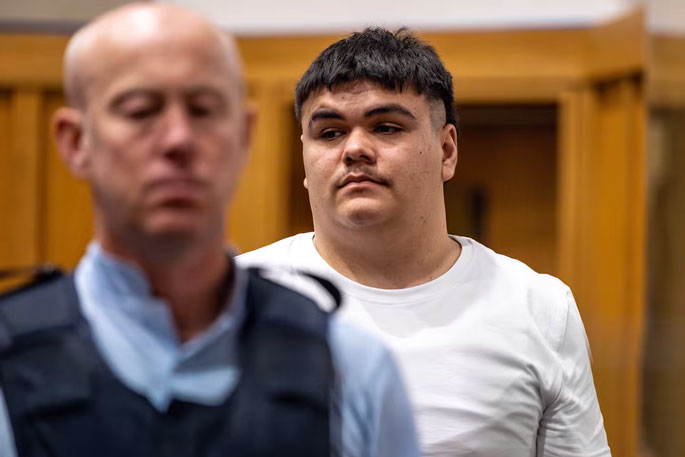 Samuel Mark Milosi. Photo / Mike Scott
Samuel Mark Milosi. Photo / Mike Scott

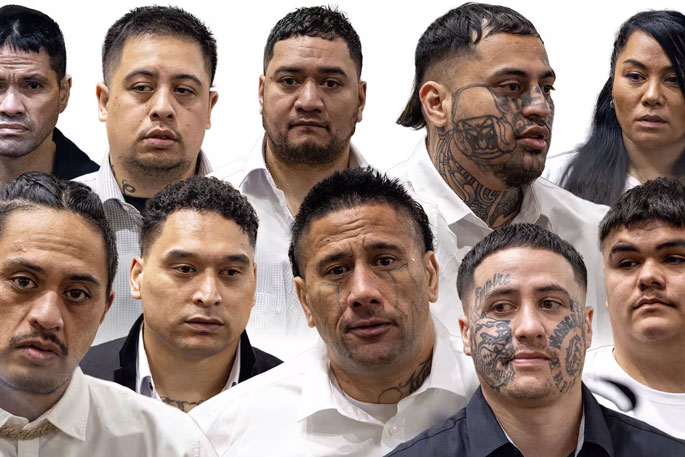



1 comment
The Master
Posted on 10-11-2024 12:13 | By Ian Stevenson
So all were at the address and it all went down... the answer generally appears to be "it wasn't me"?
Leave a Comment
You must be logged in to make a comment.